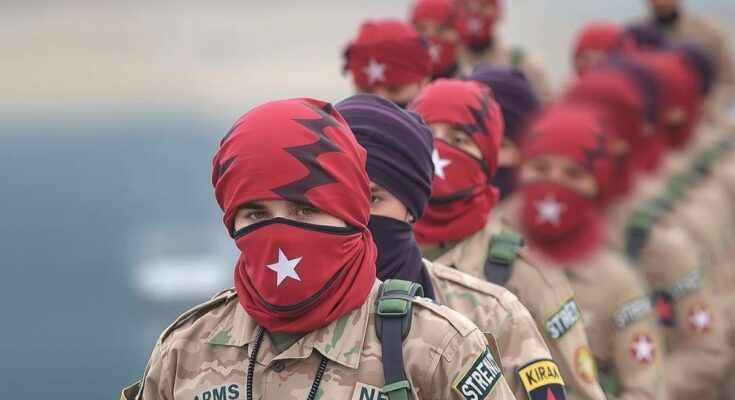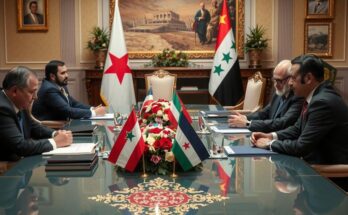Diplomats from eight Arab nations met in Jordan to advocate for a peaceful political transition in Syria following the ousting of President Bashar al-Assad. Russia is reportedly pulling back its military presence while retaining its main bases. The rise of the Islamic State poses additional security concerns, and heightened diplomatic efforts reflect the urgency to stabilize Syria amidst ongoing violence and humanitarian crises.
Top diplomats from eight Arab nations convened in Aqaba, Jordan, on Saturday, advocating for a peaceful political transition in Syria following the recent ousting of President Bashar al-Assad. The foreign ministers from Jordan, Iraq, Saudi Arabia, Egypt, Lebanon, the UAE, Bahrain, and Qatar collectively emphasized the need for representation of all political factions, aiming for a political process in alignment with UN-led initiatives and Security Council Resolution 2254. Amid these developments, sources confirmed that Russia, while repositioning its military presence in northern Syria, intends to maintain its primary bases in Alawite Mountains and Latakia. Meanwhile, violence continues in Syria, as the Islamic State claimed responsibility for attacks resulting in civilian casualties, highlighting the complex state of security in the region. In a broader context, tensions regarding women’s rights in a potential new Syrian regime have emerged, adding another layer to the ongoing discussions. Concurrently, Israel reportedly targeted military sites in Damascus late last week, an act underscoring the volatile situation. As foreign powers aimed to stabilize the conflict-ridden nation, the diplomatic landscape appears fluid, with active engagements from the UN and regional stakeholders, including Turkey reopening its embassy in Syria. The return of Russian cargo planes to Libya indicates logistical adjustments amidst the battlefield’s changing dynamics, reinforcing the ongoing geopolitical entrenchments in the Middle Eastern conflict.
The recent political upheaval in Syria, following the ousting of President Bashar al-Assad, has generated significant diplomatic activity across various nations. With Islamist-led rebels gaining control, there are immediate calls for a political transition that reflects the will of the Syrian people and is supported by international stakeholders. Russia’s military involvement has also shifted, with troop withdrawals from certain combat zones yet a continued presence at key bases, raising questions about its future role in the region. The stability of Syria remains uncertain, particularly with the resurgence of extremist factions and the need for humanitarian considerations amidst political change.
The ongoing developments in Syria paint a complex picture of political change and uncertainty. The Arab and international diplomatic efforts signify a collective desire for a peaceful transition, yet the challenges posed by extremist elements and military pressures complicate the situation. Russia’s military strategy reflects its sustained interests in the region, while the emphasis on human rights and institutional integrity presents further demands on the new leadership. As international stakeholders navigate this volatile landscape, the future of Syria hangs precariously in the balance.
Original Source: www.france24.com




